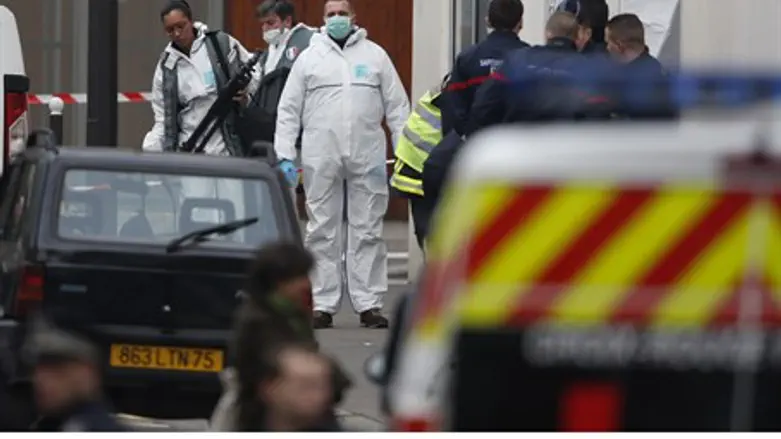
Having known ties to jihadist terrorist groups like Al-Qaeda is no guarantee a person will be under constant surveillance, experts say, a clue as to how the brothers who committed the Charlie Hebdo magazine massacre slipped through the cracks.
Finding extremists is easy. What's nearly impossible, intelligence sources say, is tracking every move of all of them, all the time.
"It is not because you are known that you are permanently under surveillance," said Eric Denece, director of the French Center for Intelligence Research.
On Wednesday, Cherif Kouachi (32) attacked Charlie Hebdo's offices in Paris with his older brother Said (34) while armed with Kalashnikov assault rifles; in the process they murdered 12 people and wounded several others.
Cherif has already been jailed for his role in sending fighters to Iraq, and his name cropped up in a failed attempt to break terrorist Smain Ait Ali Belkacem out of prison in 2010. Said for his part trained with Al-Qaeda in Yemen.
Officials have already revealed the two were on the US "no fly" list "for years," and that French officials were notified.
So how does brothers with a dubious jihadist past who were known to the intelligence services procure a Kalashnikov and execute a bloody attack on a place already under police protection because of previous threats?
A similar question cropped up in what until now had been France's most jarring recent attack, when Al-Qaeda terrorist Mohamed Merah back in 2012 in Toulouse murdered Rabbi Jonathan Sandler, his sons Aryeh and Gavriel, and another pupil, Miriam Monsonego hy''d, at the Ohr HaTorah school. He also murdered three French soldiers before being killed while trying to flee a police raid on his apartment.
Merah was a known radical Islamist with 15 criminal convictions and had traveled to Pakistan and Afghanistan for training.
But Denece said the authorities simply couldn't watch all suspects all the time, noting "at some point surveillance comes to an end, especially if you are smart enough to watch your step for a while. These are inevitable holes in the net."
On Thursday morning French Prime Minister Manuel Valls said that while "these individuals were most likely being monitored, there is no such thing as zero risk" when it comes to the threat of an attack.
Interior Minister Bernard Cazeneuve confirmed that the suspects had been "under surveillance" but that there was "no element indicating an attack was imminent."
A police source confirmed to AFP that Cherif had not traveled abroad recently and the brothers were not being monitored "as targets who could move into action."
"Lists in lieu of surveillance"
A massive new pool of potential jihadists has been created by the stream of French citizens going to fight alongside Islamic State (ISIS) terrorists in Iraq and Syria. Police trying to track those who leave and those who return, battle-hardened and radicalized, are inundated.
"Of course we don't have the means to put all these people under permanent surveillance," a French official working in the anti-terrorist sector told AFP on condition of anonymity.
"So what we do is make lists. Those who appear the most dangerous, the most likely to move into action, are under permanent surveillance. The others, less so, depending on the resources," the official said.
"The list is constantly evolving, some climb, others go down. The knack is to have the right names in the right place and that is not easy," the official said.
Another expert in the field, also speaking on condition of anonymity, said "monitoring one suspect 24/7 who is often using three or four different cellphones, that means 30 cops. What do you do? The only option is a list of priorities."
French officials, on high alert after threats from the Islamic State group against the country and its citizens, regularly say many potential attacks have been thwarted and terrorist networks dismantled.
"Several terrorist attacks had been foiled in recent weeks," French President Francois Hollande said on Wednesday after the attack on Charlie Hebdo.
But the threat is many-headed, featuring amateur jihadists, hardened fighters and everything between.
"To monitor everything you need a massive increase in police numbers...this wouldn't necessarily be effective, investigators would be overwhelmed," Denece said.
AFP contributed to this report.
